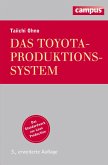This book explains the systematic structure and practical use of the new SQC application that systematically and organizationally enhances the corporate management key for the 21st century. Departing from the conventional statistical application of SQC, this book explains the SQC application for scientific problem solving and its structural framework in which SQC is utilized for discovering the cause and effect relation from the gap between a theory and the actual, eliciting a new fact and finding, and establishing a general solution that contributes to development of innovative technology. It also reports case studies in which management technology issues were solved at a manufacturer, Toyota Motor Corporation, and verifies that: 1. Application of Science SQC promotion cycle that enables creative human resources development enhances problem solving skills of the staff and business process quality, and contributes to establishing core technology; 2. Science SQC is applicable to a wide range of business types including planning, design, engineering, production, sales, and administration. In the earlier thesis, "SQC Application for Developing Individual Techniques (1992)", the author introduced an example of "SQC Renaissance" in which SQC was effectively utilized for solving engineers' immediate problems. Further, in the thesis, "Science SQC-Innovation of Business Process Quality 2OOO)", the author proposed approaches and procedures of scientific application of SQC (Science SQC) and verified their effectiveness by introducing case studies that solved contemporary engineering problems.
As is represented by the world's top-level Japanese automotive manufacturers, Japanese manufacturers have been climbing to winning positions in global businesses. The driving force of their success includes responsiveness to diversifying market needs and elevating quality requirements, clarification of development concepts that facilitate new technology, application of technology to product planning and design, advanced production control systems that elaborately utilize state-of-the-art manufacturing technologies, and flexible, efficient production. Many Japanese manufacturers succeeded in fulfilling these factors mainly because they utilize Japanese-style Lean Production Systems or the so-called Toyota Production System (TPS) and Japanese-style, scientific quality management approaches such as Statistical Quality Control (SQC) and Total Quality Management (TQM) in order to improve their corporate management technology. As severe competition among manufacturers intensify both inJapan and overseas, action against quality problems that remarkably diminish customer satisfaction, and customer-first quality management, is becoming important. Scientific quality control methods that aim to optimize production processes for building in quality were undermined by the past expansion of quantity-oriented manufacturing through automation with massive and heavy equipment.
As is represented by the world's top-level Japanese automotive manufacturers, Japanese manufacturers have been climbing to winning positions in global businesses. The driving force of their success includes responsiveness to diversifying market needs and elevating quality requirements, clarification of development concepts that facilitate new technology, application of technology to product planning and design, advanced production control systems that elaborately utilize state-of-the-art manufacturing technologies, and flexible, efficient production. Many Japanese manufacturers succeeded in fulfilling these factors mainly because they utilize Japanese-style Lean Production Systems or the so-called Toyota Production System (TPS) and Japanese-style, scientific quality management approaches such as Statistical Quality Control (SQC) and Total Quality Management (TQM) in order to improve their corporate management technology. As severe competition among manufacturers intensify both inJapan and overseas, action against quality problems that remarkably diminish customer satisfaction, and customer-first quality management, is becoming important. Scientific quality control methods that aim to optimize production processes for building in quality were undermined by the past expansion of quantity-oriented manufacturing through automation with massive and heavy equipment.








